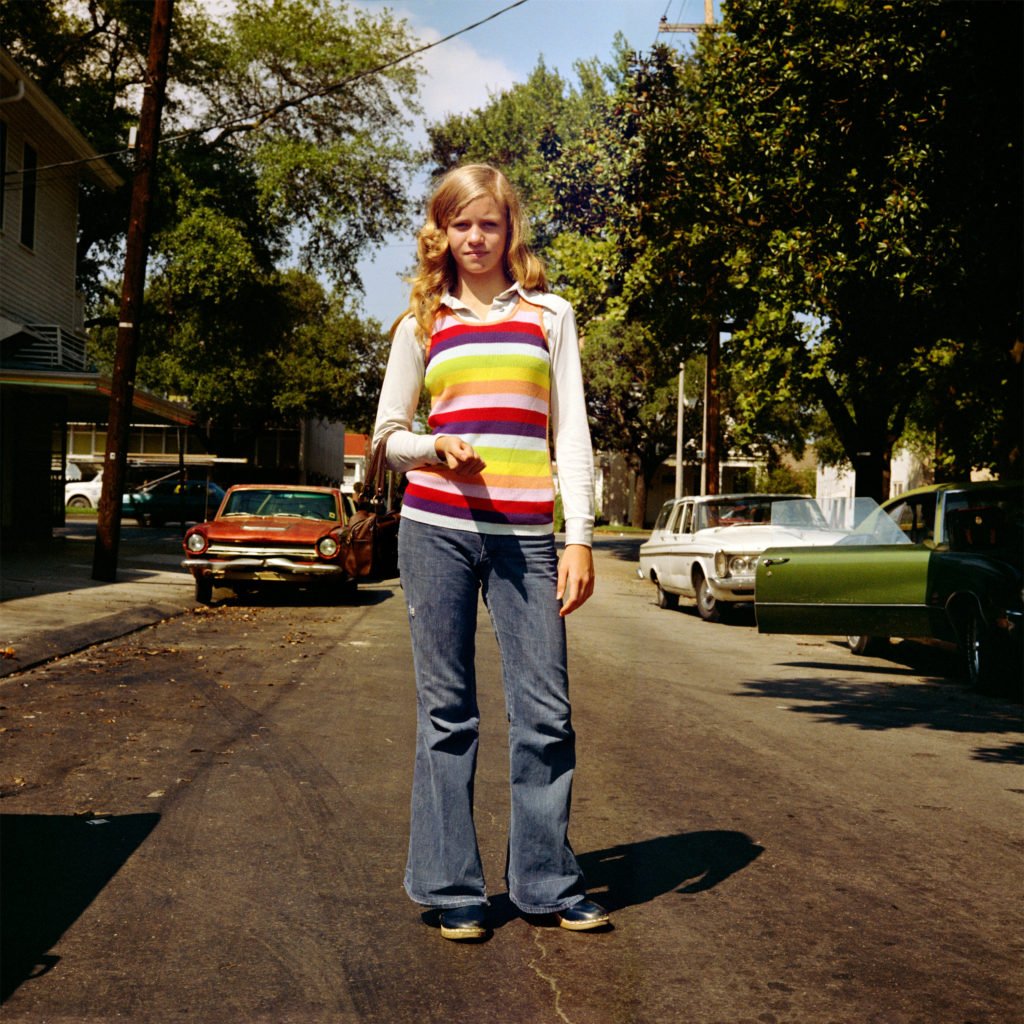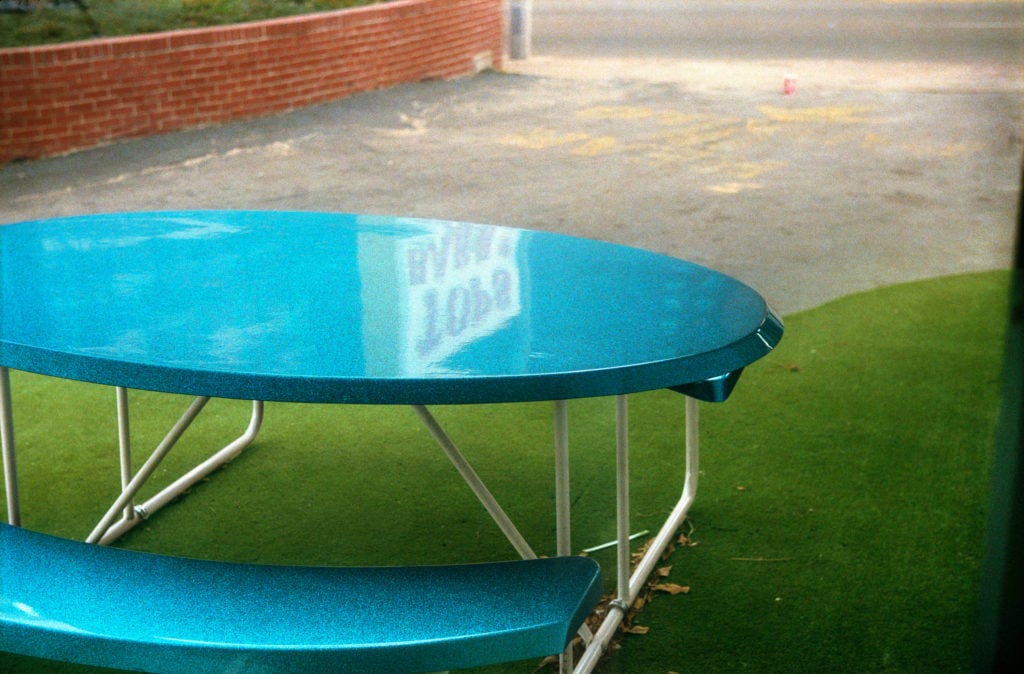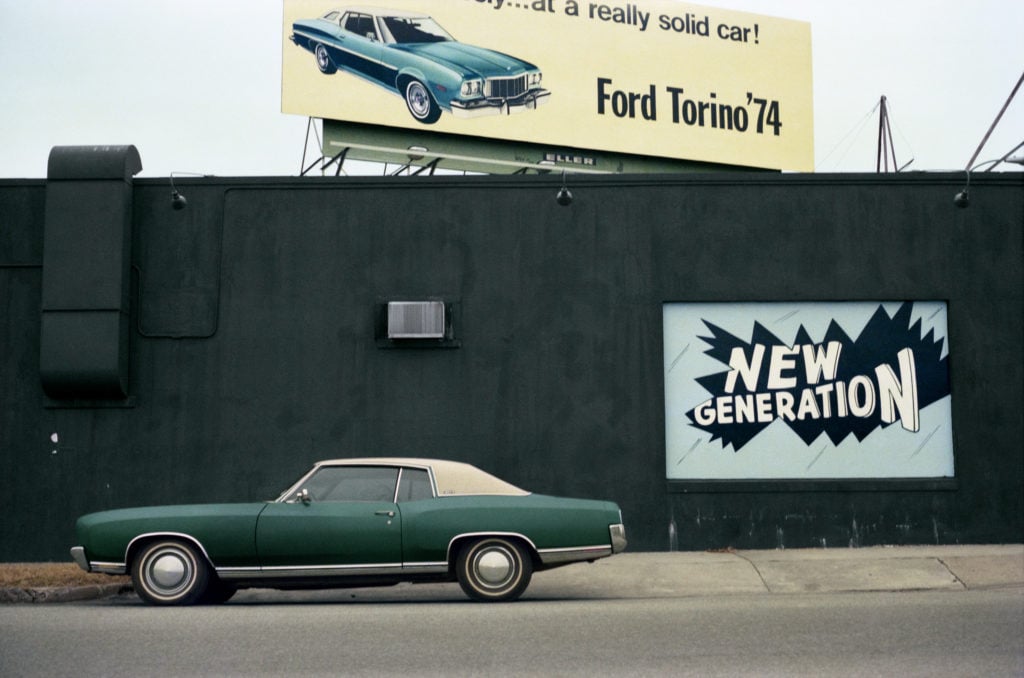Art World
Turning 80, Photographer William Eggleston Is Launching a Foundation to Preserve His Life’s Work and Promote Scholarly Research
The foundation will oversee Eggleston’s archives in Memphis.

The foundation will oversee Eggleston’s archives in Memphis.

Taylor Dafoe

Training his camera on the ephemeral moments of everyday life, William Eggleston, the godfather of color photography, changed the course of the medium. Now, as the artist enters his 80th year, he’s looking at time through a different lens—his own.
Eggleston and his family have launched a foundation dedicated to the preservation and scholarship of his work. Based in Memphis—the photographer’s birthplace and longtime home—the Eggleston Art Foundation will manage the artist’s archive of papers, prints, and some 50,000 negatives (which is a lot considering he famously never took a picture of the same thing twice).
The newly formed non-profit will also oversee the artist’s catalogue raisonné, facilitate loans for shows, and stage programming in Memphis. (David Zwirner Gallery, which has exclusively represented the artist since 2016, will continue to handle sales and image reproduction requests.)
Eggleston’s children, Andra, Winston, and William Eggleston III, comprise the founding board, while Virginia Rutledge, an art historian and intellectual property lawyer who has worked as a curator at the Los Angeles County Museum of Art and served as vice president and general counsel for Creative Commons, will serve as director.

William Eggleston, Untitled (c. 1984). © Eggleston Artistic Trust. Courtesy of the Eggleston Art Foundation.
For Eggleston and his family, the question of legacy has loomed for years, especially as scholarly attention to the work increases. “There is a constant stream of questions that the artist is in the best position to address,” Rutledge tells Artnet News. “Establishing the foundation now is a way to help preserve all of this going forward.”
Despite its dedication to an artist who made his best-known work between the 1950s and 1980s, Rutledge says the foundation is uniquely positioned to be an active player in the art of today. She points out Eggleston’s notion of the “democratic” camera and his belief that no object was more deserving of our visual attention than any other. The foundation plans to adopt a similar spirit with its programming, she explains.
“Eggleston’s eye is democratic in the sense that nothing is beneath notice,” Rutledge says. “We’re interested in presenting work by artists who are similarly engaged in responding to what’s actually out there in the world, while being aware that we all have our own lens. The more we can look closely at what and how we think we’re communicating with each other, the more clearly we’ll be able to recognize our filters.”

William Eggleston, Untitled (c. 1974). © Eggleston Artistic Trust. Courtesy of the Eggleston Art Foundation.
To that end, the foundation’s first effort is an exercise in looking, and the subjectivity thereof. It will sponsor an exhibition contrasting Eggleston’s work with that of Jennifer Steinkamp, an artist known for her uncanny computer animations, at Memphis’s Dixon Gallery and Gardens in January. The show, titled “At Home at the Dixon,” will hone in on the artists’ use of technology and interpretations of the natural world.
The Eggleston Foundation has also launched an Instagram account, a noteworthy addendum if only because it marks the first time that the photographer himself has come anywhere near the platform. So what does William Eggleston think of Instagram, a phenomenon that owes a lot to the artist’s own seductive style and visual language?
Well, we asked.
“I think my pictures look pretty good,” he said.